Safe Travel: Choose Wisely, Research Thoroughly, Stay Secure

Invest in high-quality travel safety products for peace of mind while exploring. Research local cult…….
We are At Your Service
Traveling has become an integral part of modern life, whether for leisure, business, or cultural exchange. However, with increased mobility comes a heightened risk landscape, requiring travelers to be more vigilant and proactive about their personal safety. “Personal Safety for Travelers: Products and Precautions” is a comprehensive approach that equips individuals with the knowledge, tools, and strategies to navigate potential dangers while on the move. This article delves into the multifaceted world of traveler safety, exploring various products, precautions, global influences, economic implications, technological innovations, policy frameworks, challenges, and future prospects. By the end, readers will be equipped with a holistic understanding of how to protect themselves while exploring the globe.
Definition: Personal safety for travelers refers to the measures and precautions taken by individuals to safeguard their well-being during travel, encompassing physical, emotional, and digital security. It involves a combination of personal awareness, preparedness, and utilizing specific products designed to enhance security while on the move.
Core Components:
Personal Awareness and Preparedness: This is the foundation of traveler safety. It includes developing situational awareness, understanding local customs and laws, and being mentally prepared for unexpected events.
Emergency Contact and Communication: Having a network of reliable contacts, both locally and back home, can be crucial in case of emergencies. Access to consular services, emergency hotlines, and trusted travel companions or groups enhances safety.
Physical Security Products: These range from basic accessories like travel locks and hidden wallets to advanced devices such as personal safety alarms, GPS trackers, and body-worn cameras. These tools aid in deterring theft, monitoring one’s location, and providing a means of self-defense.
Digital Safety Measures: In today’s digital age, protecting personal information and online identities is vital. This involves using secure passwords, enabling two-factor authentication, encrypting sensitive data, and being cautious when sharing personal details online.
Health and Wellness: Staying physically and mentally healthy during travel is essential. Proper nutrition, hydration, rest, and stress management techniques contribute to overall well-being and resilience.
Historical Context: The concept of traveler safety has evolved over time, driven by changing social, political, and technological landscapes. Historically, travel was often fraught with dangers like crime, accidents, and disease. With the advent of modern communication systems, emergency services, and global cooperation, many of these risks have been mitigated. However, new challenges such as terrorism, cybercrime, and natural disasters have emerged, necessitating a more nuanced approach to personal safety for travelers.
Significance: Personal safety is a fundamental aspect of responsible travel. It enables individuals to fully immerse themselves in new destinations, explore with confidence, and minimize potential risks. By empowering travelers with knowledge and tools, it fosters a sense of independence, enhances overall travel experiences, and promotes cultural exchange.
“Personal Safety for Travelers: Products and Precautions” is a global concern, with diverse influences and trends across regions:
North America and Europe: These regions have well-established traveler safety infrastructures, including robust emergency services, comprehensive travel insurance coverage, and advanced digital security systems. However, rising cybercrime rates and concerns about personal data privacy drive ongoing innovation in digital safety products.
Asia Pacific: Rapid economic development in this region has led to increased domestic and international travel. While infrastructure improvements enhance physical safety, cultural differences and varying legal frameworks present unique challenges that require tailored solutions for travelers.
Latin America and the Caribbean: The focus here often revolves around addressing high rates of property crimes and street violence. Tourists are advised to be particularly vigilant in crowded areas, and the use of anti-theft devices is encouraged.
Middle East and Africa: Regional conflicts and security concerns shape traveler safety considerations. Some countries have stringent entry requirements and security measures, while others offer unique adventure travel opportunities with inherent risks.
Trends Shaping the Future:
Digital Integration: The integration of technology into personal safety products is accelerating. Wearable devices that monitor vital signs, location tracking apps, and artificial intelligence-driven threat detection systems are becoming more prevalent and user-friendly.
Data Privacy Concerns: Growing awareness about data privacy has led to a demand for secure and transparent digital safety solutions. Encryption technologies, anonymous communication platforms, and privacy-focused travel apps are gaining popularity.
Sustainable Travel Safety: As eco-conscious travel gains traction, so does the need for sustainable personal safety measures. This includes environmentally friendly physical security products, such as biodegradable locks and reusable tracking devices, and promoting responsible tourism practices to enhance overall safety.
The economic implications of “Personal Safety for Travelers” are significant, impacting both individual travelers and global industries:
Market Dynamics: The travel safety market is a diverse sector, encompassing various products and services. From lock manufacturers and security software developers to travel insurance companies and emergency response service providers, each player contributes to the overall ecosystem. Market growth is influenced by factors like rising international travel volumes, changing consumer preferences, and global economic conditions.
Investment Patterns: Investors recognize the potential for long-term returns in this sector due to its importance for responsible travel. Funding for startups developing innovative safety technologies, as well as established companies enhancing their product offerings, has been steady.
Economic Impact on Destinations: Safe and secure travel experiences contribute positively to the economies of many countries, attracting tourists and fostering local businesses. Conversely, high levels of traveler insecurity can deter visitors, impacting destinations’ revenue streams.
Technology plays a pivotal role in enhancing personal safety for travelers, with continuous innovations transforming the landscape:
| Category | Technologies/Products | Impact | Future Potential |
|---|---|---|---|
| Location Tracking | GPS trackers, mobile apps | Real-time location monitoring, emergency sharing | Advanced AI integration for predictive threat analysis |
| Communication | Encrypted messaging apps, portable satellite phones | Secure communication, access to remote areas | Integration with wearable devices for hands-free connectivity |
| Biometric Security | Fingerprint scanners, facial recognition | Authentication and access control | Biometric data as a secure identifier in various applications |
| AI Threat Detection | Machine learning algorithms, behavioral analysis | Pattern recognition, predictive alerting | Continuous learning and adaptation to new threat vectors |
| Wearable Safety Devices | Personal safety alarms, body-worn cameras | Deterrence and emergency signaling | Smart clothing with integrated safety features |
These technological advancements offer travelers enhanced security, peace of mind, and improved ability to manage emergencies. As technology continues to evolve, expect further integration into everyday travel accessories and devices, creating a more interconnected yet secure global traveler network.
Governments worldwide play a crucial role in shaping “Personal Safety for Travelers” through policies, regulations, and legislative frameworks:
Consular Services: Many countries provide consular services to assist citizens traveling abroad, offering emergency support, document replacement, and travel advice. These services are vital for traveler safety and well-being.
Travel Advisories and Warnings: Governments issue travel advisories based on security assessments, informing citizens about potential risks in specific destinations. This helps travelers make informed decisions and take necessary precautions.
Data Protection Laws: With increasing digital connectivity, data privacy regulations like GDPR (General Data Protection Regulation) in Europe have significant implications for traveler safety technologies. Companies must ensure their products comply with these laws to protect user data.
International Cooperation: Global initiatives and agreements facilitate cooperation among nations in dealing with cross-border security issues. This includes sharing intelligence, establishing travel safety standards, and coordinating responses to global threats.
Despite the numerous benefits, “Personal Safety for Travelers: Products and Precautions” faces several challenges and criticisms:
Cost and Accessibility: Some advanced personal safety products can be expensive, making them less accessible to budget-conscious travelers. Striking a balance between affordability and effectiveness remains a challenge.
False Sense of Security: Over-reliance on technology or physical devices may create a false sense of security, leading individuals to neglect fundamental personal awareness skills and common-sense precautions.
Data Privacy Concerns: While digital safety tools offer protection, they also raise privacy issues. Users must carefully consider the trade-off between security and the potential misuse or unauthorized access to their data.
Solutions and Strategies:
Government, Industry, and Community Collaboration: Multi-stakeholder partnerships can address challenges by combining resources, expertise, and insights. This collaborative approach can enhance product development, improve accessibility, and raise awareness.
Education and Awareness Campaigns: Providing travelers with accurate information and practical tips is crucial. Governments, travel organizations, and safety experts can collaborate on educational initiatives to empower individuals with the knowledge to protect themselves.
Continuous Innovation: The industry must remain agile and responsive to evolving global security landscapes. Ongoing research and development in technology, coupled with feedback from users, will lead to more effective and user-friendly safety products.
Case Study 1: Japan’s “Safe Travel” Initiative
Japan’s Ministry of Foreign Affairs launched the “Safe Travel” campaign, focusing on enhancing traveler safety through comprehensive information provision and emergency support. Key components include:
Travel Safety Website: A dedicated website offers detailed travel advice, destination-specific information, and a one-stop platform for reporting emergencies.
Emergency Contact Lines: 24/7 telephone hotlines provide instant access to consular services, translation assistance, and emergency medical support.
Cultural Sensitivity Training: The campaign emphasizes cultural awareness, educating travelers about local customs and etiquette to foster better interactions with locals and avoid misunderstandings.
Lessons Learned: This initiative demonstrates the power of combining technological solutions with robust information sharing and community engagement. By empowering travelers with knowledge and direct access to support services, Japan has successfully improved personal safety for its citizens and visitors alike.
Case Study 2: “TravelSafe” App in South Africa
The “TravelSafe” app, developed by a South African startup, offers real-time location tracking, emergency alerts, and access to local security services. Key features include:
Real-Time Location Sharing: Users can share their locations with trusted contacts, providing peace of mind during travel.
Emergency Alert System: The app sends automated alerts to pre-selected contacts in case of sudden movement or silence from the user, ensuring swift response during emergencies.
Local Security Network: Integrating with existing security companies, it connects users to local guards and emergency services for additional protection.
Impact and Success: “TravelSafe” has gained popularity among both domestic and international travelers, contributing to a safer travel culture in South Africa. The app’s success highlights the potential of leveraging technology to address specific regional safety challenges.
The future of “Personal Safety for Travelers” holds exciting possibilities, with emerging trends shaping the industry:
Integration of AI and IoT: Artificial intelligence will play a more prominent role in threat detection, predictive analytics, and personalized travel safety advice. The Internet of Things (IoT) will enable smarter, interconnected travel experiences, enhancing both physical and digital security.
Biometric Identity Verification: Beyond access control, biometric data will become a secure identifier for various travel-related services, from boarding passes to customs clearance, offering faster and more secure transactions.
Sustainable Safety Solutions: Eco-conscious travelers will demand sustainable safety products, leading to innovations in biodegradable materials, energy-efficient devices, and environmentally friendly tracking technologies.
Personalized Safety Profiles: Using data analytics, travel platforms can create personalized safety profiles, offering tailored advice based on individual preferences, destinations, and risk profiles.
Strategic Considerations for Industry Players:
Research and Development: Continuous investment in R&D is crucial to stay ahead of emerging threats and technological advancements. Collaboration with academic institutions and industry partners accelerates innovation.
Data Privacy and Security: As digital safety products grow in popularity, ensuring robust data protection measures will be essential to gaining and retaining user trust. Compliance with global privacy regulations should be a top priority.
Global Partnerships: International cooperation is vital for sharing best practices, harmonizing standards, and coordinating responses to cross-border security challenges. Public-private partnerships can drive innovation and enhance safety infrastructure globally.
Community Engagement: Engaging local communities in destination countries can foster cultural understanding and improve travel safety. Collaborating with local organizations and influencers can lead to more authentic and immersive travel experiences.
“Personal Safety for Travelers: Products and Precautions” is an evolving field that reflects the dynamic nature of global travel. By addressing physical, digital, and emotional security concerns, travelers can fully embrace new destinations with confidence and resilience. The industry’s ongoing efforts to innovate, educate, and collaborate are essential in navigating a complex and ever-changing security landscape.
As technology advances, policy frameworks evolve, and cultural exchanges expand, the future of traveler safety will be characterized by enhanced connectivity, data-driven insights, and a holistic approach to personal well-being during travel. By equipping individuals with the knowledge and tools outlined in this article, we empower travelers to explore the world safely, responsibly, and without limits.
Q: How can I choose the right safety products for my travels?
A: Consider your destination, mode of travel, and personal risk tolerance. Research reliable brands and read reviews to ensure the product meets your specific needs. Look for devices that offer multiple safety features and are easy to use in emergency situations.
Q: Is it necessary to invest in expensive safety gear?
A: While some advanced products come at a premium, there are many affordable options available. Prioritize based on your budget and the level of risk involved in your travel plans. Basic accessories like locks and hidden wallets can be effective and cost-efficient starting points.
Q: How can I stay safe while using location-sharing apps?
A: Be mindful of your privacy settings, share locations only with trusted contacts, and consider occasionally turning off location services when you’re in secure environments. Regularly review app permissions and update your privacy preferences as needed.
Q: What should I do if I encounter a safety hazard while traveling?
A: Remain calm and assess the situation. Use emergency contact numbers specific to that country, reach out to local authorities or embassy support services, and follow their instructions. Remember, quick thinking and clear communication are crucial during emergencies.

Invest in high-quality travel safety products for peace of mind while exploring. Research local cult…….
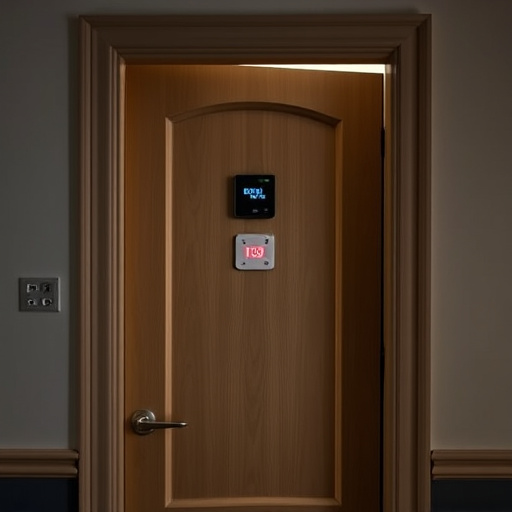
Before traveling, prepare with essential travel safety products: high-quality luggage, secure locks,…….
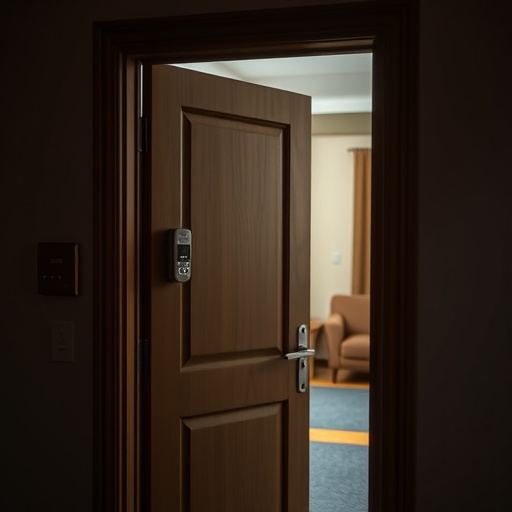
Understanding and prioritizing traveler protection advice is crucial for safe travel. This includes…….
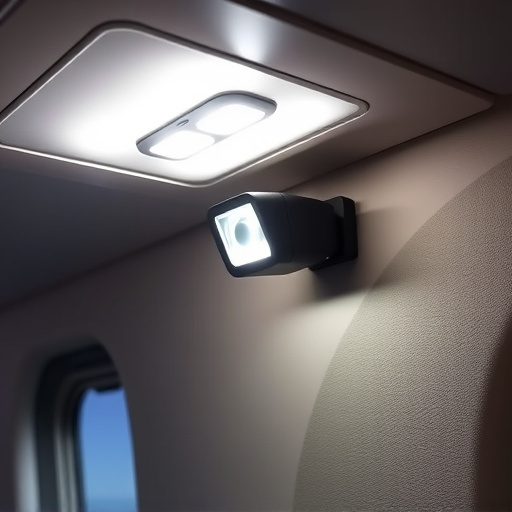
Embark on your next adventure with unparalleled peace of mind. Essential travel precautions aren…….
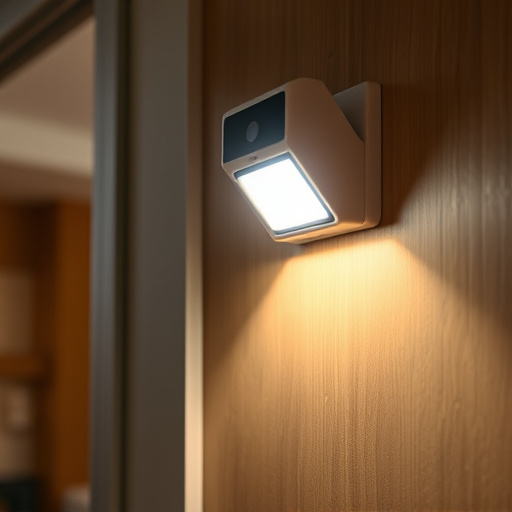
Embark on your adventures with unwavering trust and peace of mind. By seamlessly integrating smart s…….
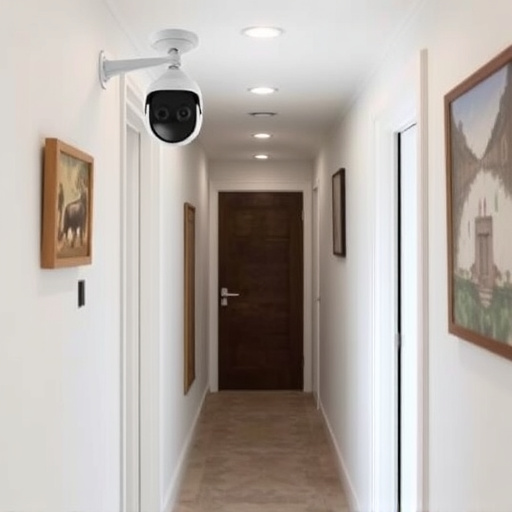
Unleash your inner explorer with confidence! Embracing effective traveler safety tips is the key to…….
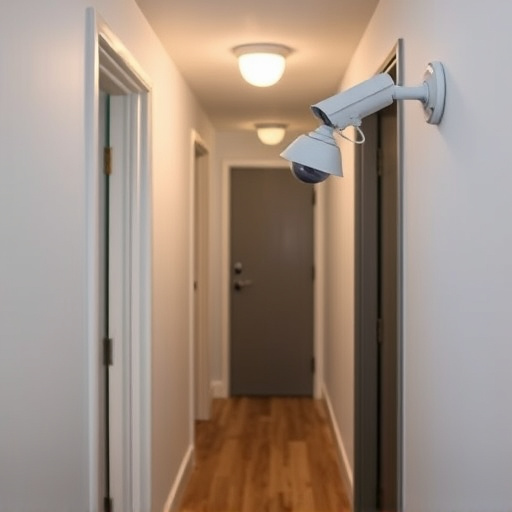
Unlock a world of worry-free adventures by prioritizing safety precautions for travel. Imagine confi…….